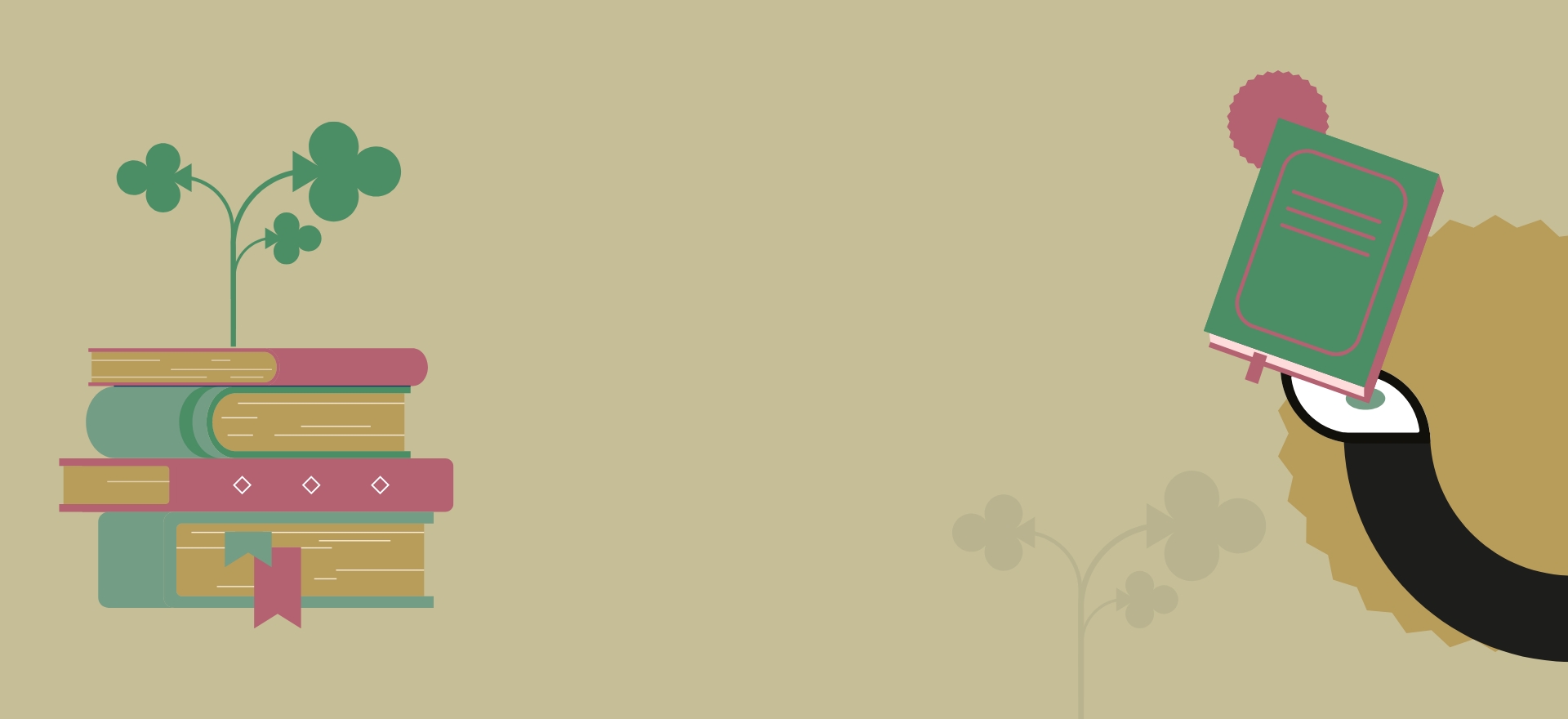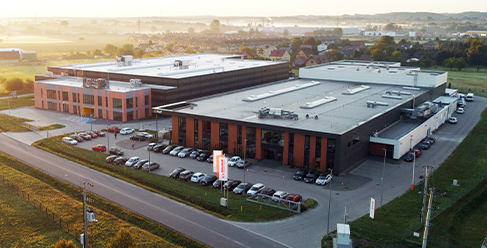
Eco-Factory
If you think about the environment and harmful things, factories probably immediately jump to your mind as some of the worst offenders. Let us change your perception with our Eco-Factory and its innovative solutions, including a solar power installation, heat pumps and rainwater reclamation systems, which allowed us go go circular and minimise our impact on the environment. Our factory, launched in 2020, is fully BREEAM-compliant – during its construction, we used local suppliers and contractors, and the state-of-the-art production equipment enables us to optimise the production.
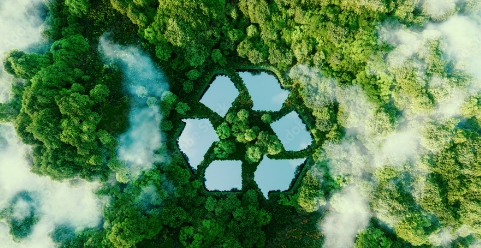
Recycling
The process of transforming waste into raw materials to make new products. Thanks to recycling, we do not have to use virgin raw materials, all while giving waste a new life – much better than a landfill. The most commonly recycled materials include plastics, paper and glass.
Recycled – if you find that word on the product or packaging, it means that it was made out of recycled waste – natural resources were not used to make it.
Recyclable – this term lets you know that once you do not need a certain product, you can recycle it, so that it can be reprocessed and turned into a new product. Just remember to toss it in the right recycling bin.
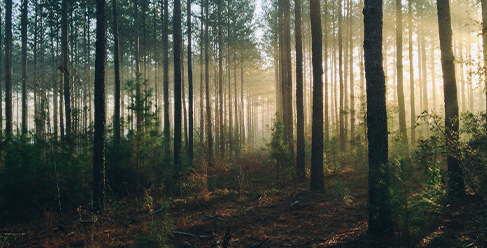
FSC
What do our boxes, cards, boards, pawns and other game pieces have in common? The cardboard, paper or wood from which they are made is FSC-certified, which ensures that they were made responsibly, and that while making your games, we did not contribute to illegal logging, deforestation or forest degradation. The certificate is awarded by a prestigious, independent non-profit organization – the Forest Stewardship Council. By buying products with the FSC® Certificate, you can contribute to the protection of forest ecosystems and thus to reducing the impact of climate change.
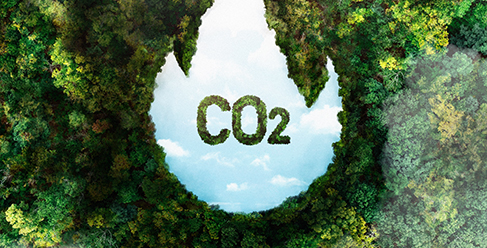
Carbon footprint
a concept that stands for the total amount of greenhouse gases emitted into the atmosphere. Greenhouse gases, carbon dioxide being the most important one of them, all contribute to global warming. The carbon footprint of a product is measured across the entire life cycle – from obtaining the raw materials required for making the product, all the way to its disposal – including transportation, use and storage along the way. These days, leaving no footprints is a good idea in all aspects of our lives!

Biodegradability
Biodegradable waste decomposes into simpler compounds – while this process is quite common and quick in nature, synthetic materials can take up to several thousand years to decompose. Standards for biodegradable waste are not as stringent as for their compostable counterparts – this means that some harmful substances may be released as the waste decomposes. Dispose of biodegradable waste in the mixed waste bin.
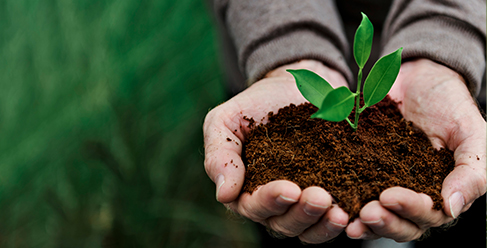
Compostability
Compostable waste means all kinds of waste that break down into simple nutrients used as a fertilizer– all thanks to microorganisms that help us in the process. The stringent standards ensure that no harmful substances are released during decomposition and that every last piece will be gone in a reasonably short time – up to 180 days. Just keep in mind to put it in the brown trash bin or home composter – and that’s it! A compostable card wrapper can turn into nutrients in a matter of weeks. And that’s what we like!
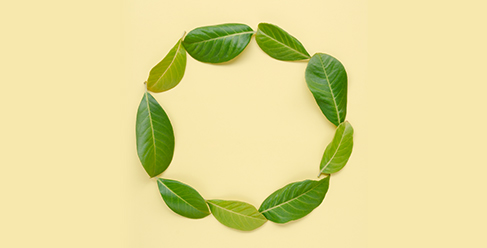
Closed loop
The foundational principle of the so-called circular economy – a way of managing resources that envisages reusing resources for as long as possible, thus reducing the need for virgin raw materials and the amount of generated waste. The most popular example of a closed loop is the recycling process, which enables turning old products into new ones. It can also be done on a larger scale – just take a look at our Eco-Factory, where we reuse rainwater in sanitary installations. That way, nothing is lost!

ISO 14001
An international standard that defines environmental management regulations for a company or organization, enacted back in 1996. ISO 14001 certification confirms that a company is doing everything in its power to reduce its adverse impact on the environment as much as possible.

Recyclable materials
You could say these are cat-like materials, because just like our feline friends, they have many lives. Unlike regular waste, which eventually ends up in landfills (and oceans), recyclable materials can be transformed into new products, which helps us reduce our usage of natural raw materials. This process is called recycling – in order to enable it, make sure to toss your paper, plastic, glass and aluminium waste in the right bin.
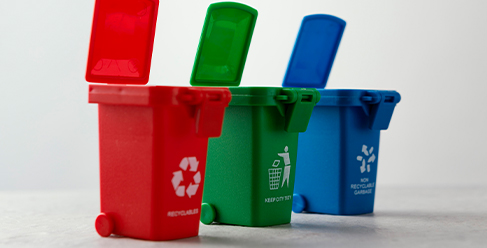
Segregation
A key step in the process of turning recyclable waste into new products. Waste segregation is something that should be done at every home, as well as in public spaces. All you have to do is put your trash in the right bin. The colours of the bins depend on local regulations, but in most cases paper and cardboard go into a blue one, green is for glass, while plastics and metals go into a yellow bin. Without segregation, recyclables will end up in the regular landfill and will not be reused.

Zero Waste
An increasingly popular economic and lifestyle trend which entails reducing one’s negative impact on the environment, mainly by minimising the amount of waste we produce. The idea is based on five famous rules – refuse, reduce, use, recycle and rot. Companies like Fabryka Kart are a part of this movement by producing well-designed, durable, reusable products that can be disposed of in an environmentally friendly manner.

Sustainability
The latest and most responsible trend in the economy, which involves constant efforts to strike the right balance between the health of the planet, the well-being of our communities and the growth of our companies. The guiding principle is to fulfil the needs and use resources in such a way as to ensure that future generations will have the same opportunities as we do now.

